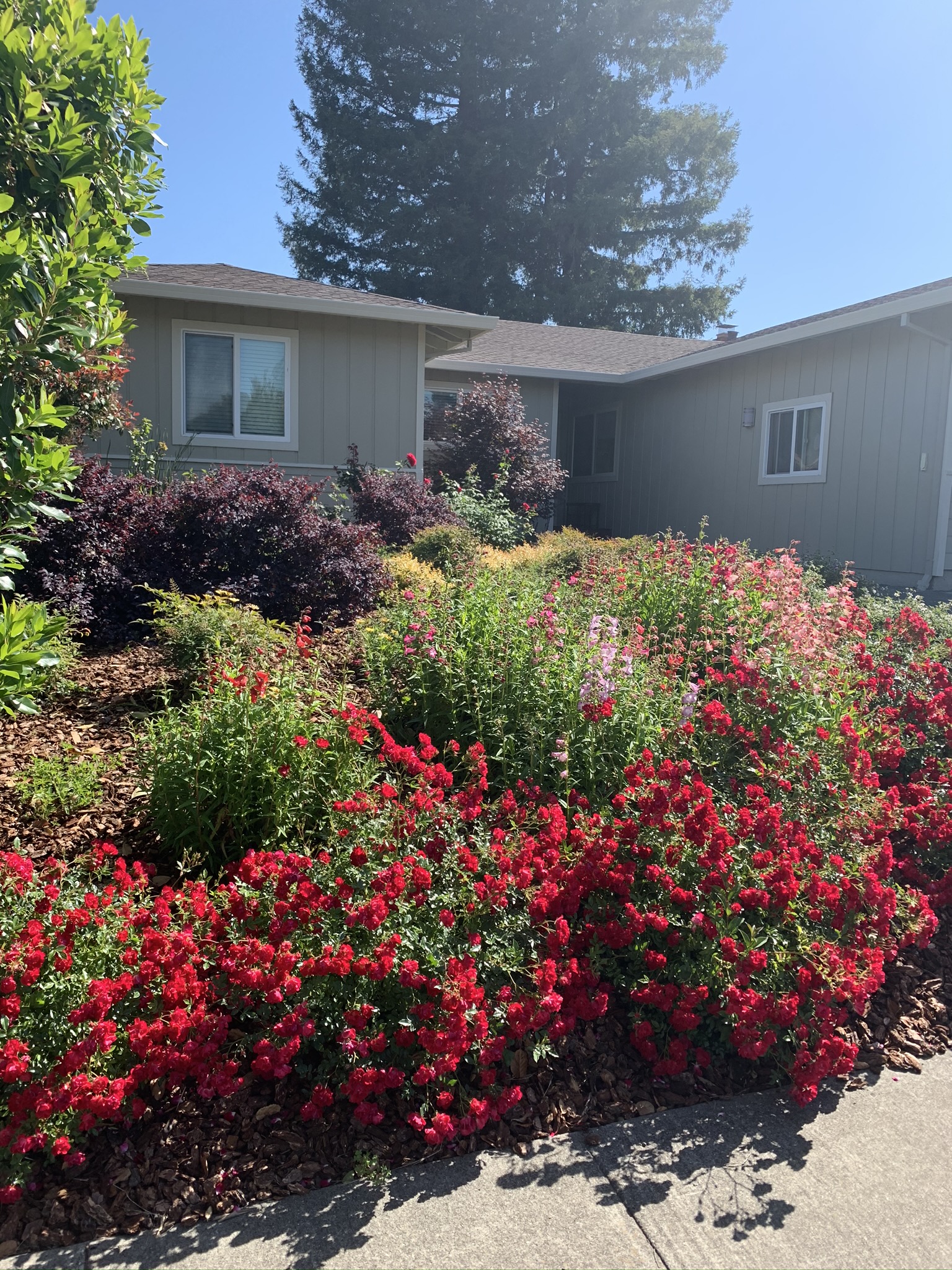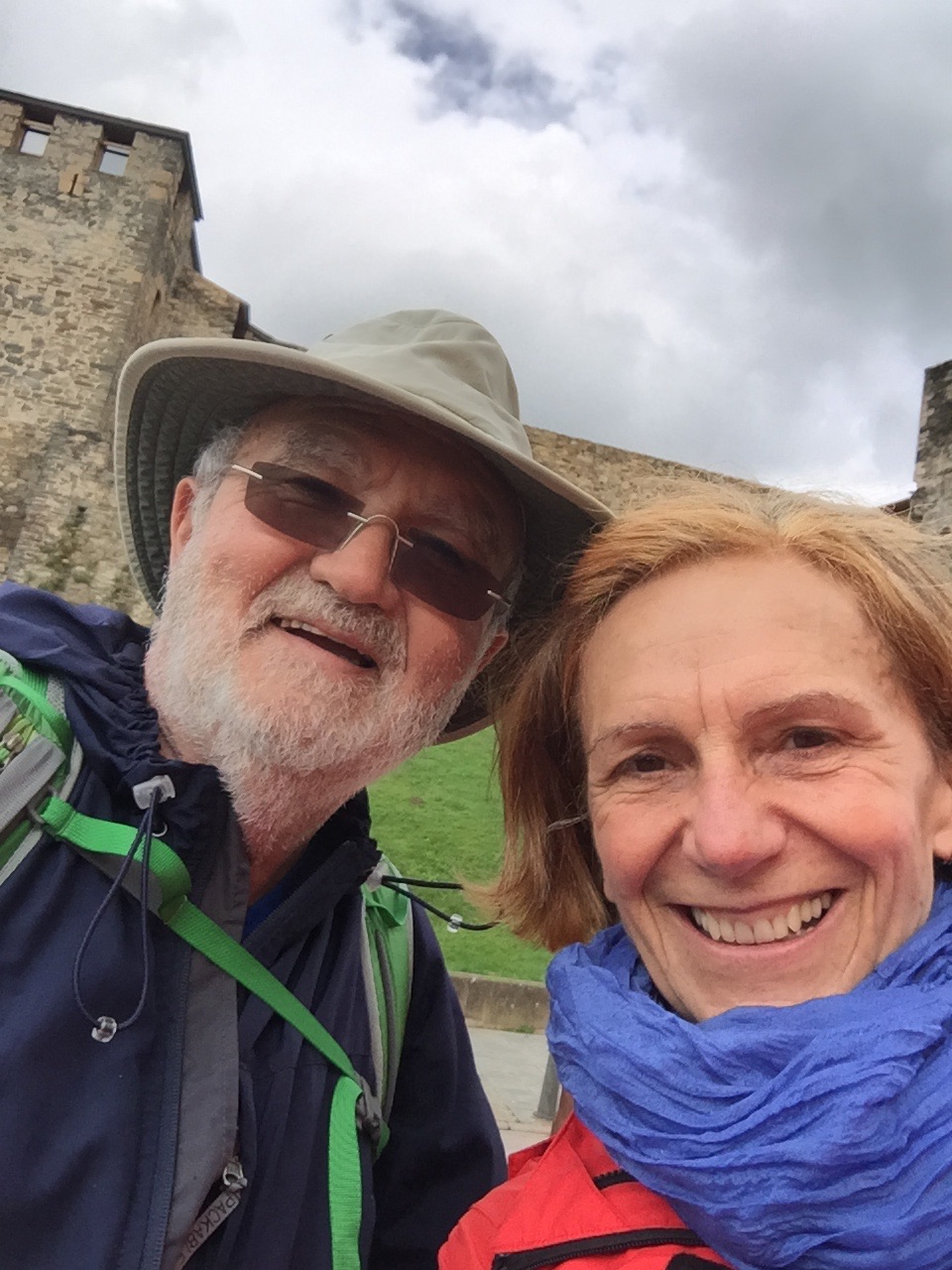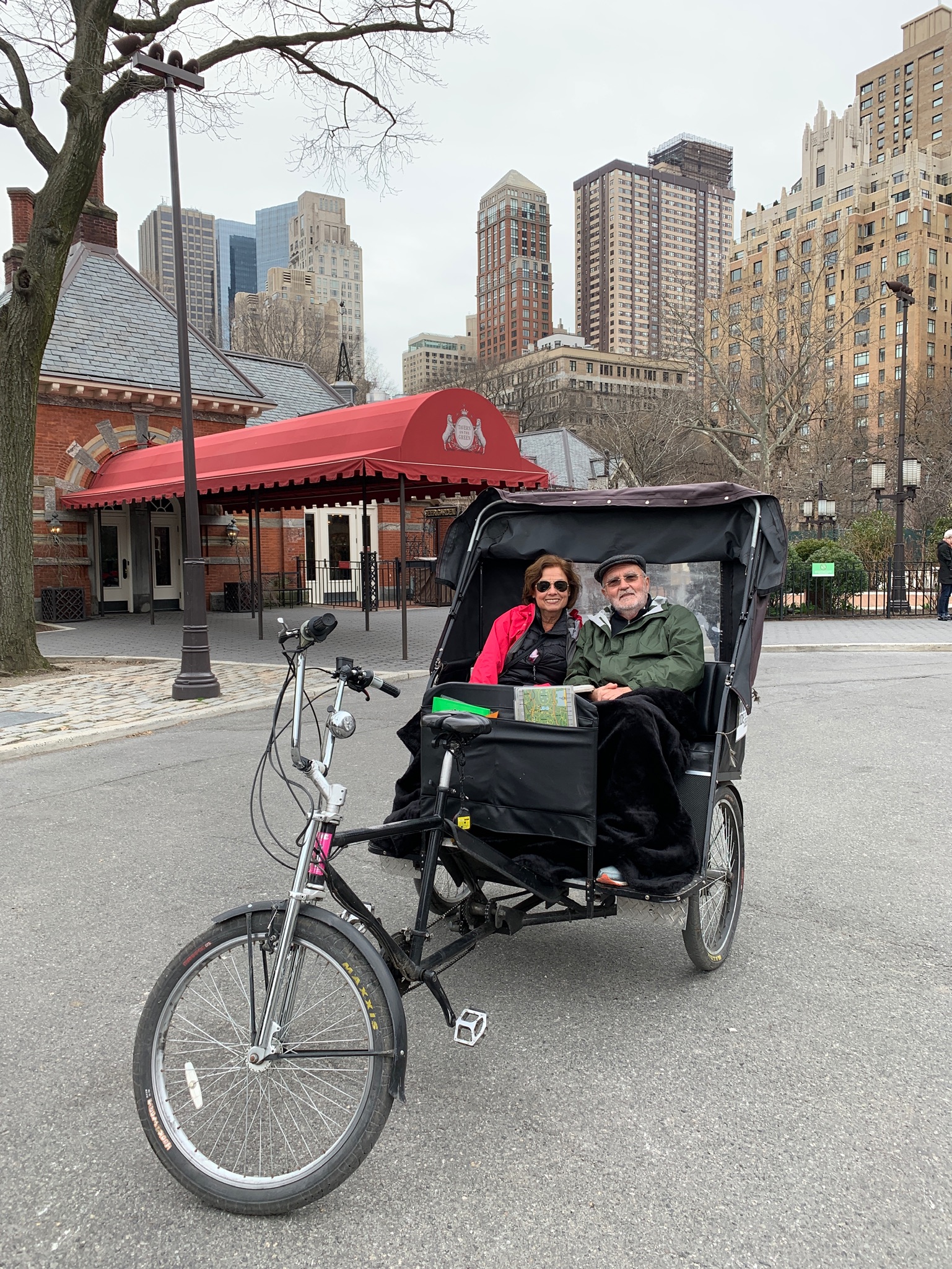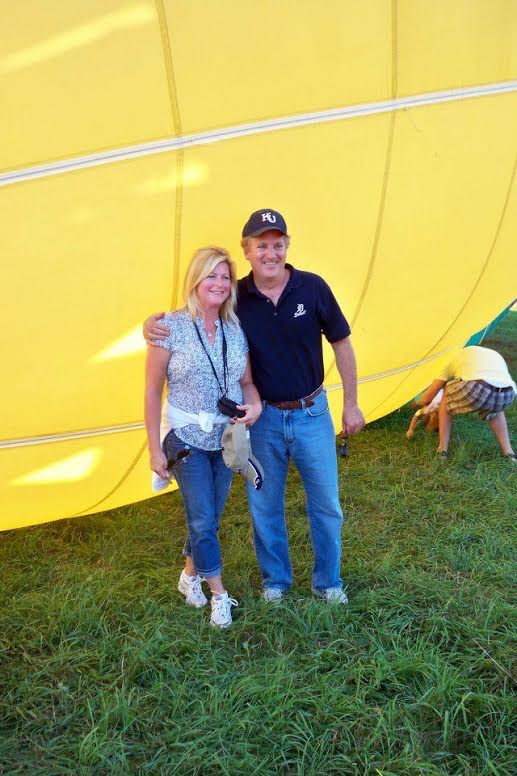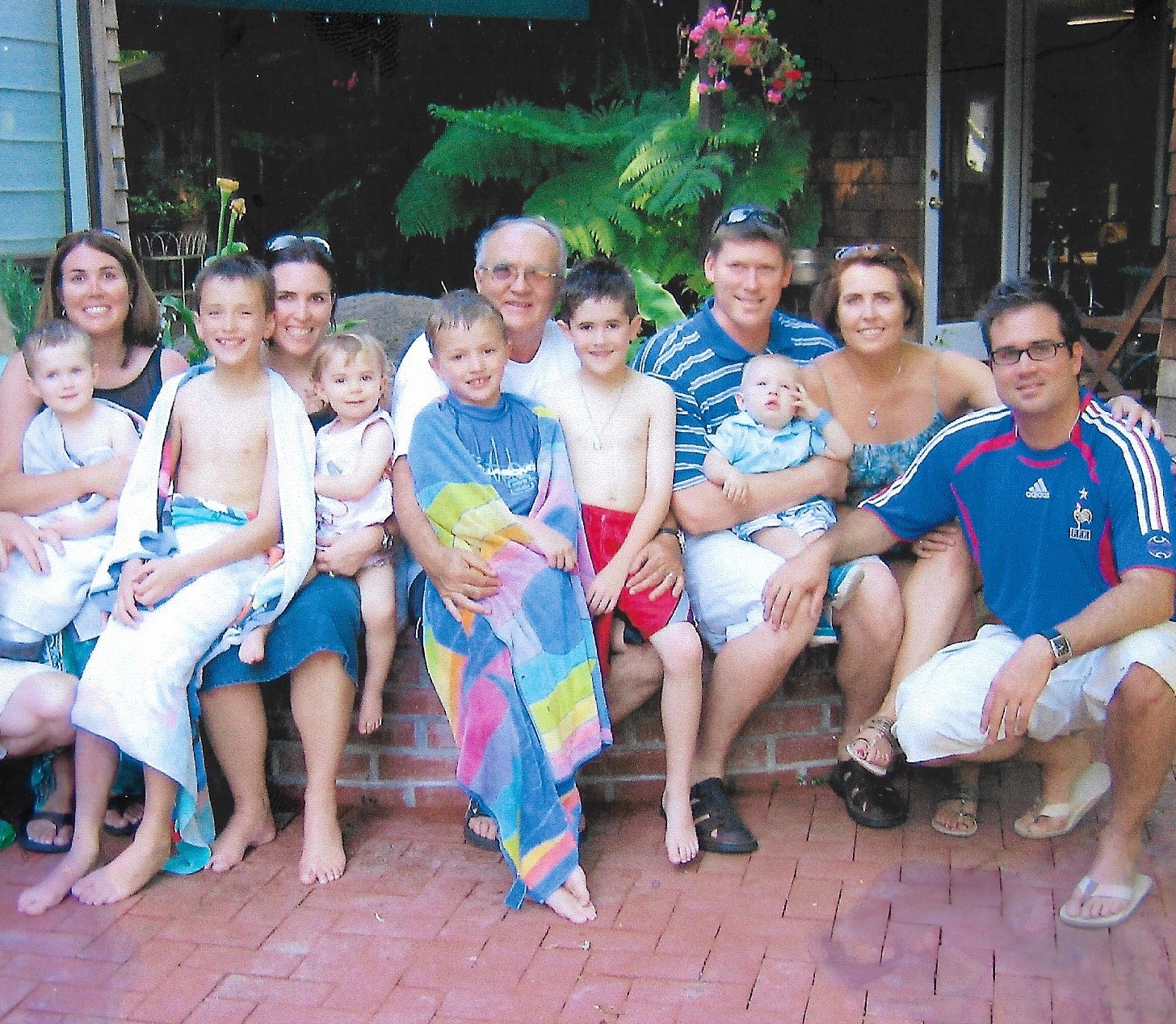Every body knows me by Javier. I do not know if my brothers and sisters know that my first name is Jose The only one that ever called me Jose Javier was my grandma. I only use my first name for legal matters. I was born on February 16, 1947. At least that`s what my birth certificate says. I grew up in central part of Mexico in Aguascalientes, Ags. My earliest memories go back when I was 2 ½ years old. I remember the house we lived in had three steps down to get into the house when you come in from the street. Most houses in Mexico still have the main entrance door right before the sidewalk. I would always get scared when we came back to the house because the steps looked extremely high to me, and I was afraid I would fall though somebody always held my hand. Back then most houses had a washboard made of cement to waist high. Next to it, we had a beer looking barrel that was used as a water container for doing the wash. My older sisters would put me in there to give me a bath. Well, one day, my sisters forgot they had put me in it and hours later they found me asleep with my own poop by my chin. Most houses back then had the bedrooms connected to each other so we could go to somebody`s bedroom through somebody else`s bedroom. I remember that one night I woke up at night and I started crying and went to my parent’s bedroom and my dad pick me up from one of my arms and I slept between the two of them. This has been a wonderful memory that I treasure in my heart because that was the last time as a child that I saw my parents together. The next thing I remember at that age is that my mom and dad got separated. My mom took me by the hand, and we left for Nuevo Laredo Tamaulipas a city bordering Laredo, TX. I`m assuming my parents agreed for me to go with her.
I spent half a year in Nuevo Laredo, Tamaulipas where my mom took me to a Child Care while she went to work. Two things took place that I can never forget. One day my mom and I were going to get something to eat, and we had to cross a street, I got a head of mom and I got runover by a man on a bicycle and broke my right ankle and ambulance took me to the nearest hospital. I had a cast put on, but it really did not hurt that much. But what I really liked the most is that while in the hospital they fed me well with a nice hot chicken soup. The other thing that took place is that I went to play at the house of one of my friends from Child Care. While there we started to play as if we had swords on our hands. To make it more real we decided to use an empty bottle each one of us and as we were playing I accidently (and I am being honest about it) hit him between the eyebrows that left him with a scar for the rest of his life. I still feel bad about it.
My mom got her residence to the States and worked in a hospital as an assistant nurse taking care of people with tuberculosis while I stayed with my uncle Manuel and his family in Nuevo Laredo, Tamaulipas. She would come over to see me every weekend. Then she took me across with a permit and we lived in Laredo, TX near the hospital.
During all that year I kept telling mom that I wanted to go back to my dad. She finally agreed and sent me back with Uncle Francisco one of her brothers who had come for a visit. My mom gave him plenty of money, but he chose the cheapest transportation- third class on the train. He did not buy any food for neither of us. He just gave me water. We finally made it back to Aguascalientes (known by the local people as “Aguas”) Happy to see my dad and my brothers and sisters.
My grandfather Agapito on my dad’s side had passed away before my parents separated. My grandmother Ildefonsa, then a widow and seeing there was a need in my family without my mom. She decided to invest her time and money to help my dad. We always called her “Mamá Poncha”.
Even though my dad worked in construction, we never owned a house. My dad rented 13 houses as I was growing up. My parents were separated and never got a divorce. That gave us kids the liberty to ask each one of our parents to let us live with one of them one or more years at a time. My 3 older brother and sisters stayed with mom for few years. Only my younger brother Armando and I grew up together as kids.
The next event in my life began to take place when I was 7 years old. I always had a great time with the neighbor kids on the streets. In the 50’s there were not that many cars in town, especially at that time. We would play at night after supper like from 8:30 pm until 11:00 pm when all parents began telling everybody that it was time to go to bed.
Back then the weather was nice like 75° F max. Everybody had to have blankets every night because temperature would drop to like in low 40’s. I remember attending a Catholic school and having to wear all year, a uniform which included a sweater. All privet schools had their own uniforms. The only time when we would sweat was when we played full court basketball. Nobody had an air condition or heaters. We just added more blankets in the wintertime and wore a heavy jacket. No heaters in schools either. The temperature back then would drop to like the coldest 28° F. I have not gotten used to the hot weather yet. But now that there are more factories, more population, more cars, more pavement, etc. the temperature has gone up. Things have really changed.
One of the first things That I remember at that age, is that every morning my grandma would wake me up at 5:30 am so I could go to the “Lechería y Panadería” (Milk and Bakery) to get milk. It was only 3 blocks away and I was always the first one at the door before the owner. Sometimes I even bit the milk man. He had the milk in steel cans well covered. He carried all of that on a cart pulled by a mule who was trained to pull the milk cart right to the milk store while the farmer would always sleep all the way. I miss that row milk. My grandma would always boil it well for about 15 minutes and as it cooled down it would create a thick yellowish cream which I was allowed to use like butter.
Now that we are talking about food, I would like to mention that my generation and the one before it, had a special meal practice that is not in use anymore. We ate 5 meals a day.
Desayuno (Breakfast) at 7:00 am Almuerzo (Brunch) at 10: 30 during our school recess. Comida (Lunch ) at 1:00 pm Merienda (Lopper) at 6:00 pm Cena (Supper) at 8:00 pm
For school recess, I always took 2 rolls made especially in Aguascalientes like the pictures billow filled with different things each day like: scramble eggs mixed with beans or meat, etc. Explaining all these things is already making me hungry!!! Why am I torturing myself this way???
Three of my aunts had gone into an enclosed convent for women located in Rincón Street. That meant, that as soon as they went inside, they agreed to marry Christ Jesus and serve him inside. They would not be allowed to be seen by any outsider, except by tree people: the priest, the family doctor and the altar boy and they would never come out until their dead, and that is exactly what happen.
The last one was still alive when I was 7 yrs. old. She would encourage me to be a priest but that I had to start being an altar boy. So that is what I did. Every morning a priest would go to that convent to officiate mass for the nuns. They had a small chapel where outside people could attend. It had a thick curtain so no one could see them. They had a beautiful choir. I started learning some Latin because that is the way it was at that time. After the priest commanded Jesus to come down and die, (for that is what they believe) transubstantiation would take place. That means that at that moment the wafer and the wine would become the real body and blood of Christ. The priest would walk down the altar with the Chalise Then I would take a small platter with a handle to put under the chin of every nun as the came and knelt before the priest and the priest would stick a wafer in their mouth. The platter was to catch any crumbs which I would put in the Chalise along with some wine and the priest would drink it. Why??? because it is the Catholic belief that the crumbs must be eaten too because they are the body of Christ and do not want any crumbs fall to the floor because people could step on them, or rats could eat them. And to think that I used to believe that. I was really blind to the truth!!!
Well, the nuns had their faces uncovered but people could not see them because of the curtain. As they approached the priest for the wafer, I would stare at every face to see what my aunt looked like because I was sure she would make some kind of gesture. But she never did. That made me really sad.
Every Sunday afternoon we as a family were able to visit with her for half an hour through a window there was a thick cloth covering that window. We could only talk to her that way. There were not any chairs there. We would always ask her how she was doing, and she would always say she was happy and doing well. Sometimes that made me wonder if somebody was next to her with a knife forcing her to always answer that way. She passed away in June 1960. Her name was Maria del Rosario. Well, I finally was able to see what she looked like as they had her in the casket. One interesting thing is that they said she died of a heart attack. Everybody believed that. But that is what they would say for each one who died. No one would question it.
One time after school, when I was 8 yrs. old. two ladies who had a food stand called me as I was walking by, minding my own business. They had a problem, their dog had just died and wanted me to take it away and in return I would get a good amount of money. I agreed to that. They gave me a rope and I tied it around the dog’s neck and dragged him all the way to an empty lot, few blocks away. Well, what I did not know is that the owner of that lot knew the dog because he was one of the customers to those ladies and he complained to them, and they had to dispose of the dog in a different way. Next day, as usual, I went by that food stand again, and they complained about the situation. I told them that I had done to what I agreed to do, “to take the dog away”. From there on, they never even looked at me.
Only one time in my whole entire life, I skipped school. Two other kids invited me to just skip school. I wanted to find out what kids did during that time. Well, we just wonder around not far from school, and we got bored. Just then a lady asked us if we were interested in making some money. We asked what we had to do and found out that it was crushing nut shells and take the meat out. The more we worked at it the more money we made. Well, it was good to make some money, but it was not good for my conscience. I evaluated that and decided it was not the right thing to do and that it was not worth it.
After this incident, during that summer, something got to me, and I started to leave the house at around 7:00 am and would return at around midnight. I did that every day. My dad would go to bed at latest 10:00 pm so he never found out about it. I spent all my time playing with other kids my age. In those days nobody would harm any children. Even drunkers would protect any kid and would try to help him. Well, my grandma would spank me but that did not do it. They tried to stop me by tying to my feet and my arms to my bed, but I managed to get loose. They were running out of options. One day I thought, “one of these days they might lock the door and then I won’t be able to go out” and I hid an extra key behind a picture. Sure enough. they locked the door. (back then nobody would lock doors night or day) Well, after breakfast I used the key and got out again. I got back at mid-night and my grandma was waiting for me. This time she did not spank me or scold me. She just said: “Go wash your hands I got you a steak ready for you, the way you like it “. That really hit me, and I wept while I was washing my hands. I then realized that I had not being behaving well, That I was being rebellious and that I had no reason to be. That also meant that they had given up on me and I did not want that. My grandma was always there for me. How could I have been doing this to her. She was not only my grandma but my mom too because she raised me. (I am weeping as I am writing this incident) I decided not to go out of the house without their permission anymore. It is a good thing I made that decision because the following morning I could not get up and felt totally exhausted. The doctor came to the house and said I was malnourished, and I had to stay in bed for a week.
Then one of the neighbor kids told me he had just started to sell jellies with different flavors to people working at a wood factory just 3 blocks away at 5:30 am every morning. So, I asked permission and was allowed to do it. I did that for a while until I turned 9. I always wanted to have my own money though we kids got an allowance every Sunday morning from my dad.
One day, I noticed that trash cans were full of paper from classrooms after classes and I decided that I could make some money with that. I picked it all up and put it in a big bag and carried it for seven blocks away to a recycle place where I got good money for it.
The nuns at school would always emphasize missions according to their theology. They got us involved in adopting a child from Africa and sponsor him for his needs giving a certain amount each week. We then would become godfathers. (the school was only for boys) It was during that time when I read about a tribal group on the tip of South America, in Tierra de Fuego. An island shared by Chile and Argentina. There I read the hard life of these uncivilized people. It said that they were naked while icebergs were floating around the island. That got me thinking about missions. I began to have a desire to serve my God the way I knew him. I began to read a lot of biographies of priests who were used by God. Keep in mind that the only teaching I had as a child was withing the Catholic school. I had no idea there were other people who had different believes. I thought the Catholic Church was the only Church in the world and that everybody was Catholic. I soon learned that the Catholic Church did not allow anybody to read the Bible. I did not know what the Bible was or what it looked like. I was told that if I read it or even see one that I would go to hell.
One important time for people from Aguascalientes City, is the State Fair. This picture was copied from: liderempresarial.com
This State Fair is the only one in the whole Country of Mexico where it takes place in an open area in Town and there is no charge to get in. It last basically 2 weeks. It celebrates Patron Saint Mark, patron saint of the suburb of the same name. April 25th is the patron’s day, but the State Fair starts one week before and ends one week after.
It was during these two weeks that I would have the opportunity to buy pancakes because it was the only time of the year that some lady had a stand in the fair. At that time nobody knew how to make them and only few people knew about them.
It was during this time that I would make some money. We lived right across the Saint Mark’s church where the State Fair would take place. Only the sidewalk divided the State Fair and our house. There was no pavement on that area and all the stands that were set up needed water to spray the dirt floor to keep the dust down. That was when I would do business with them. My dad would buy the news paper every day and rather than throwing it away I would save it all year around and then at that time of the year I would sell it for fairly good money. Every year, people would come from different parts of the Country and set up stands, selling different souvenirs, knick-knacks, keepsakes, etc. and needed something cheap to wrap the things they would sell. There was always a way to make some money in an honest way.
three things I remember well about my generation and wish it were put into practice today, “obedience, respect for the adults and adults acting like adults”. When my grandma or my dad or even my older sister would call me, they did not have to call me twice. They never had to say “Javier, didn’t you hear me?”. Or for me to say, “just a minute!” I would always say “Coming” and mean it. “Mande Usted”. Meaning “At your command”. I would never say: why me? why don’t you send Armando? No, I would always do what I was asked to and glad to do it. In those days, all kids with very few exceptions, would obey and respect adults. Of course, adults acted like adults with very few being the exception.
When I turned 9 years old, I wanted to ride a bicycle but at that time I did not have one for my size. So, Salvador Guerra who was 16 years old and dating my older sister Amparo, taught me to ride an adult bicycle by peddling sideways. That was the way basically all kids my age learned in those days.
Salvador started to work at a welding shop and got me a job there after school. I got $ 1.00 Peso for every afternoon. I would basically clean the shop around and would run some errands. Monday – Friday meant $6 pesos a week. Back then things did not cost that much, and prices did not go up every year like today. With $1.00 Peso I would ride the bus, go to the movies, buy an order of tacos and a Pepsi Cola. That was the original name and the most popular soda in Mexico. In fact, that was the only soda my dad drank all his life. I want to do the same. What $1.00 peso could buy, now I would need $100.00 Pesos. Converting that into USD at $19.00 to $1.00 = $5.26 US. Which means that today those $6.00 Pesos would be $600.00 pesos. So, 600 divided at 19 to 1 =$31.57 weekly. Making it $126.28 monthly. Not bad for a kid my age.
One Saturday morning there was not much to do around the shop, and I thought I do a flip on a tall dolly holding an acetylene tank. What I did not realize is that the container was empty, and the acetylene tank fell on me and hit me on my head and knocked me out. One of the guys standing nearby me and who went by “El chichimeca” rushed me to a doctor half a block away. Salvador ran to my house 7 blocks away to let my family know what had taken place. In those days we did not have a phone and only few people did. In fact. very few businesses had one. I walked up with a bump on my head, but the doctor said I was ok. From there on I learned my lesson not to play in the shop.
The catholic school that my brother Armando and I were attending required all students to attend the 5:30 am mass and have the priest signed his name on a card indicating that one had attended church. All of us kids walked to church at that time when everything was still dark. Our parents and us had no fear because crime at that time was down to zero. Those good old days when nobody locked their doors. Well, then I discovered that I could make more money by being an altar boy. They would pay $1.00 for every mass including the night church service. That was something I had an experience on, was really good at and enjoyed doing it. I then offered my services and was accepted to start the following morning. Every mass lasted 30 minutes which meant that I could do four every morning seven days a week. I did my arithmetic 7 x 4 = $28.00 Pesos a week. The equivalent to $2,800.00 Pesos today. At 19 to 1 would be $147.36. USD. That amount four times a month would be $589.34USD. I was the head altar boy and was able to choose the extra events I wanted to be involved in. Weddings, three times a month. Baptisms, three times a week. All of that meant extra money. It was costumery to tip the altar boy. Right after the wedding, I would hurry and run through the side door to the entrance of the church where the happy couple was just coming out followed by the wedding party, especially the best man, Why? because he was the one who had to look good before people and I would kindly tell him in front of the newlywed couple or either of their parents so as to put a little pressure. The more pressure the bigger the tip. I usually got a $10.00 Pesos Tip which is an equivalent to $1,000.00 Pesos today. That amount at 19 to 1 would be $52.63 USD. That amount times four for a month, $210.52USD. Now for the baptisms at nighttime. Right there where the baptism had just taken place, I would indicate with my eyes to the godfather of the child that I was ready for my tip. Everybody was looking at him and would always feel the pressure which was great for me. He then would grab a bag with coins and would give a handful. That was usually $3.00 Pesos. Today it would be $300.00 Pesos four times a month would be 1200.00 Pesos. At 19 to 1 would be $63:15USD. Immediately after I got my tip, I would run to the altar boy’s room and change to my regular clothes and run outside to wait for everybody involved in the infant baptism, especially the god father who would through coins at all the kids symbolizing prosperity for the child. The name given in Mexico is “Bolo” and that is what kids say to the god father so he can throw all the coins at them, and all kids would pick up as many coins as they could. I usually got at least $2.00 Pesos. That in dollars today would be $10.52 USD. That amount four times a month would be $42.08USD
Working at the shop $126.15 As an altar boy $589.34 Weddings $210.52 Baptisms $63:15 Bolo $ 42.08 Total monthly $1,031.24 USD This would be the equivalent for today.
I did this until I was 11 years old because my brother Armando and I went to live with mom for a year. I started to buy my own clothes, kept some for spending and rest I would just give it to my grandma. By the way, my brother Armando sang in the choir in the same church and would get $1.00 Peso for each Sunday morning.

